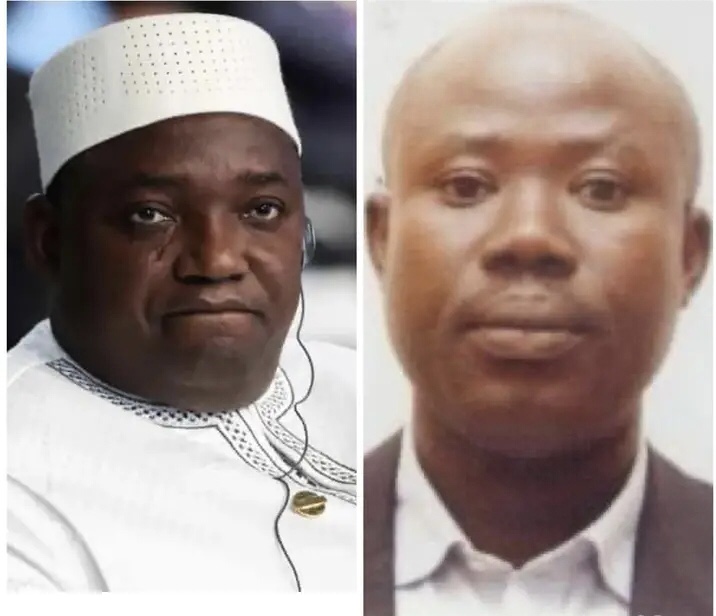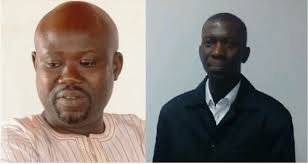
The story began, as many stories do, in the frenzied atmosphere of a typical newsroom—a space where the relentless ticking of clocks was matched only by the fevered tapping of keyboards and the low hum of hurried conversations.
Journalists, fresh from chasing leads through the city’s maze of streets, returned with adrenaline still coursing through their veins, eager to shape their findings into headlines before the press deadline loomed. In such an environment, the pressure to publish, to feed an ever-hungry readership and outpace rivals, meant that caution sometimes took a back seat.
Fact-checking, that essential safeguard against error, could be neglected in the race to be the first to print a scoop. It was in this crucible of urgency and ambition that The Voice’s ill-fated report took form—a report that, in its sprint to capture attention, bore the hallmarks of the scandal sheets of yore, where substance often yielded to the clamour of sensation.
This hurried pursuit of breaking news set into motion a cascade of events that would lead from the chaos of the newsroom to the solemn chambers of the courtroom and ultimately, the shadowed alcoves of backroom diplomacy, where truth is reshaped by whispered bargains.
The entire controversy erupted when The Voice dared to publish its provocative piece, a report that insinuated shadowed machinations, alleging that President Adama Barrow was priming businessman Muhammed Jah as his heir for the 2026 elections.
Yet, this story, like so many that clutter the pages of Gambian tabloids, was a work lacking all integrity; it was published with scant regard for substantiation, poorly sourced, and written with such indifference to fact that one could almost imagine the reporter and editor nursing hangovers from a late-night escapade.
The piece was as thin as the whispers of the East End gossip-mongers, spun with the ease of a tale told at midnight and lacking any rigorous corroboration. It was the type of report that, were it to pass under the gimlet eye of an editor from Dickens’s day, might have been cast aside with a scowl and a muttered oath.
And yet, as shoddy as the story was, the press in any democracy retains the right to speculate, to opine, and, at times, to miss the plot entirely. Even so, the wielding of that right is a weighty affair—a pact with the public that demands responsibility. Errors, when they occur, require the press to set the record straight, to make amends under the stern eye of public trust.
No sooner had the paper hit the newsstands than President Barrow, with the reflexes of a seasoned political animal, enlisted the services of Ida Drammeh & Associates to issue a stern missive—a prelude to legal battle, should The Voice fail to retract its allegations.

The narrative shifted with the suddenness of a play’s final act, from the raucous spirit of the newsroom to the austere and unyielding gravitas of the courtroom. Here, where justice dons her blindfold and the scales tip under the weight of influence, Barrow’s response was resolute and unforgiving. The civil suit he launched stood as a gauntlet thrown, a stark reminder that even in the freest of societies, the press’s liberties are tethered to chains that power can rattle at will.
The Voice found itself under the unforgiving light of scrutiny, faced with an ultimatum that echoed the fate of errant scribes in Trollope’s Britain: defend your claims with unassailable truth or wither beneath the gavel’s fall.
In this instance, The Voice was presented with ample opportunity to atone for its errors, especially once the President’s office had voiced concerns, citing misrepresentation.
Two clear paths lay before them: they could offer Barrow’s office a right to reply, permitting a rebuttal in their own publication, or they could issue a formal corrigendum, retracting inaccuracies with an apology born of genuine contrition. Such gestures are not mere formalities but the bedrock of journalistic integrity, essential to sustaining the public’s faith. They are akin to the oaths and declarations in the hallowed courts of Chaucer’s time—a pledge to truth that binds the teller as surely as any bond.
Yet, in an act as audacious as the sharp-tongued jesters of Thackeray’s parlors, The Voice’s editors chose defiance over concession, boldly stating, “We stand by our report.” For a fleeting moment, those words resonated like the battle cry of Fleet Street’s rebellious spirits, galvanising those of us who believe in a press that cannot be bought, bullied, or broken. We took them at their word, seeing in their resolve a rare glimpse of a Gambian newspaper unafraid to stare down power.
To support The Voice was to support the very principles of democratic freedom, to believe that the press could indeed speak truth to power without cowering or compromising. With that one assertion, The Voice inspired confidence, respect, and hope for a robust, independent press—one that could be the beating heart of accountability in Gambian society.
But this defiance proved a mirage, as insubstantial as the mists that curl about the craggy moors in Hardy’s Wessex Tales. When the summons came and The Voice’s editors faced President Barrow in person, their resolve crumbled. The paper, which had once basked in the bravado of its proclamation, now knelt before power, confessing error and offering the very apology it had steadfastly refused.
It was a surrender cloaked not in the dignity of a principled correction but in the shroud of defeat. This capitulation summoned the memory of Julius Caesar’s conspirators, whose loftiest ambitions unraveled in whispers and betrayal. The spectacle left those who believed in the integrity of The Voice adrift, betrayed by an institution that had promised fortitude but delivered only submission. The betrayal stung deeper than the blade of Brutus, for it carried with it the silent admission that when power flexes, even the supposed champions of truth may falter.
President Barrow, ever the charlatan statesman, accepted the apology with the grace of a monarch dispensing justice—his demeanour radiating a magnanimity that belied its calculated edge. He promised to instruct his legal counsel to withdraw the lawsuit, casting himself as the paragon of democratic tolerance.
Yet this was no simple act of clemency; it was a meticulously choreographed scene, a tableau to reaffirm who holds the reins when the press dares to gallop unchecked. The whole affair had the scent of a Dickensian parable—where virtue is paraded for public applause, while behind the scenes, the realpolitik of power plays on, unfettered and unseen.
Then came the procession of sycophants—the media delegation, that chorus of nodding heads who lauded Barrow’s withdrawal as an act of statesmanship, as if it were a stroke of Solomonic wisdom. Their accolades chimed hollow, like the jangling of a fool’s bauble in an empty hall. This grotesque mimicry of triumph could have leapt straight from the pages of Nicholas Nickleby, where charlatans and flatterers clamour for favour at the expense of truth. They spoke of press freedom as if it had been fortified when, in truth, the foundation quivered, thin and cracked beneath the weight of capitulation. Langston Hughes’s lament for the deferred dream hung heavy in the air, an unwelcome spectre in a room where conviction had withered.
Yet more troubling still were the questions left unspoken—the spectres of funds accrued and honour traded. If murmurs be true, Ida Drammeh & Associates, having prepared for a trial that never came to pass, now sat with coffers full of fees collected under the auspices of justice. To retain such lucre without a gesture of restitution would be to echo the venal practices of Dickens’s most unscrupulous attorneys—profit snatched from the jaws of a battle never fought.
A firm steeped in any semblance of principle might see fit to channel such funds back into the public realm—perhaps a scholarship or trust—a testament that the pursuit of justice holds more than mere financial value.
And what of The Voice? If funds were indeed gathered, drawn from the fervent support of those who believed in the sanctity of a free press, then an accounting is due. To retain those contributions after folding in the face of power would transmute their rallying cry into a jest, no more noble than the farcical ambitions that drive the tragic denizens of Hardy’s worlds. It would be an affront to those who stood with them, trusting that they would not yield so lightly.
As this chapter of Gambian press history closes, we are left not with the clear, ringing bell of victory for freedom but the muffled toll of compromise. A press that bends before power cannot inspire faith, for its voice, when called upon, will crack and falter. And so, this episode serves as a lesson—as stark as the fog-laden streets of Bleak House, as chilling as the revelations that haunt Heart of Darkness—that without the fortitude to endure, even the noblest proclamations of freedom can be swept away, leaving only echoes of what might have been.
By Arfang Madi Sillah,
Washington D.C.
Disclaimer:
The views expressed in this article are entirely those of the author and do not necessarily reflect the official policy or position of any affiliated institutions or organizations. The author takes full responsibility for the opinions and analysis presented herein. The author holds several academic degrees, including an undergraduate degree in English literature and literary theory.










Recent Comments